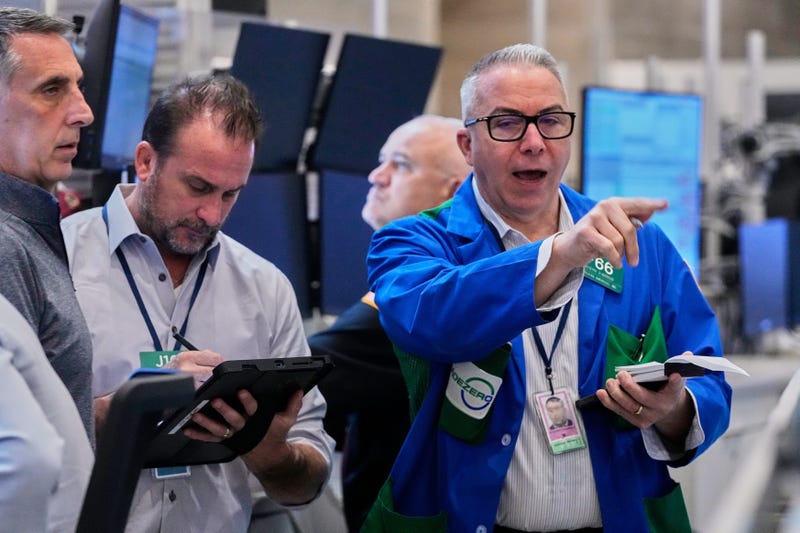
NEW YORK (AP) — U.S. stocks are rising to the cusp of their records on Thursday, as oil prices jump after President Donald Trump announced “massive” new sanctions on Russia’s crude industry.
The S&P 500 climbed 0.7% and crept back within 0.1% of its all-time high set earlier this month. The Dow Jones Industrial Average added 192 points, or 0.4%, and was just below its own record set earlier this week. The Nasdaq composite was 1% higher, with a little less than an hour remaining in trading.
Companies in the oil and gas business led the way, including gains of 1.5% for Exxon Mobil, 3% for ConocoPhillips and 4% for Diamondback Energy. They rose with prices for crude, which leaped roughly 5.5% after Trump announced sanctions against Russian oil giants Rosneft and Lukoil.
The hope is to convince Russia’s president, Vladimir Putin, to end the brutal war with Ukraine, and sanctions could constrict the global flow of oil. The jumps helped oil prices recover some of their sharp recent losses, taken because of expectations for supplies of crude in inventories to remain plentiful. Oil prices are still down more than 10% for the year so far.
Also helping to drive the stock market higher were strong profit reports from several big U.S. companies, as the reporting season for their profits during the summer ramps up. The majority are topping Wall Street's forecasts for profit, as is usually the case.
Dow jumped 12.5%, and Las Vegas Sands rallied 13.6% after both delivered stronger earnings than analysts expected. Tesla shook off an early loss to climb 1.1% in its first trading after reporting a weaker profit but also stronger revenue for the latest quarter than analysts expected.
The pressure is on companies broadly to deliver solid growth in profits. That would counter criticism that their stock prices shot too high following a 35% romp for the S&P 500 from a low in April.
On the losing end of Wall Street, Molina Healthcare tumbled 17.9% after its profit for the latest quarter fell well short of analysts’ expectations. CEO Joseph Zubretsky cited a challenging environment for medical costs, and insurers across the industry have been warning about rising medical costs throughout the year.
IBM fell 1.7%, despite reporting better profit and revenue than analysts expected. Wall Street focused instead on weaker-than-expected results for its Red Hat business, which provides open-source software products.
In the gold market, prices strengthened to halt a sharp recent slide. The price for an ounce climbed 2% to $4,145.60 per ounce.
It had dropped sharply the last two days after setting its latest all-time high, as momentum suddenly gave out following what’s been a stunning year. The price of gold has jumped about 57% so far in 2025.
Many of the factors that have sent gold on its monumental rise are still around, including concerns about the mountains of debt that the U.S. and other governments worldwide are amassing. The U.S. government's gross national debt topped $38 trillion on Wednesday, and the worry is that a continued acceleration will only worsen inflation.
In the bond market, the yield on the 10-year Treasury rose to 3.99% from 3.97% late Wednesday. That was ahead of a report coming on Friday that will show how much inflation U.S. consumers felt during September. The report was initially due earlier this month but was delayed because of the U.S. government's shutdown.
If the reading ends up benign, it could encourage the Federal Reserve to keep cutting interest rates in hopes of giving the slowing job market a boost. It delivered its first cut of the year last month, but it's been wary of promising many more because lower rates can make inflation worse.
In stock markets abroad, indexes rose across Europe following a more mixed finish in Asia.
Stocks rose 0.7% in Hong Kong and 0.2% in Shanghai as leaders in Beijing wrapped up an important Communist Party meeting to set the agenda for the coming five years. The party said afterward that it will focus on speeding up self-reliance in science and technology.
Japan’s Nikkei 225 dropped 1.4%, and South Korea’s Kospi sank 1% for two of the world’s larger losses.
___
AP Writers Teresa Cerojano and Matt Ott contributed.